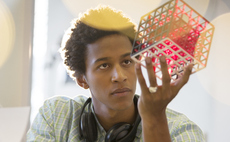William Ruh, VP of global software, tells Computing how GE has big plans for robotics and connected devices in industry
The rise of connected devices and computational power will eventually lead to Internet of Things-connected robots being deployed throughout industry. That's according to William Ruh, GE's VP of ...
To continue reading this article...
Join Computing
- Unlimited access to real-time news, analysis and opinion from the technology industry
- Receive important and breaking news in our daily newsletter
- Be the first to hear about our events and awards programmes
- Join live member only interviews with IT leaders at the ‘IT Lounge’; your chance to ask your burning tech questions and have them answered
- Access to the Computing Delta hub providing market intelligence and research
- Receive our members-only newsletter with exclusive opinion pieces from senior IT Leaders






















